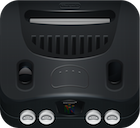
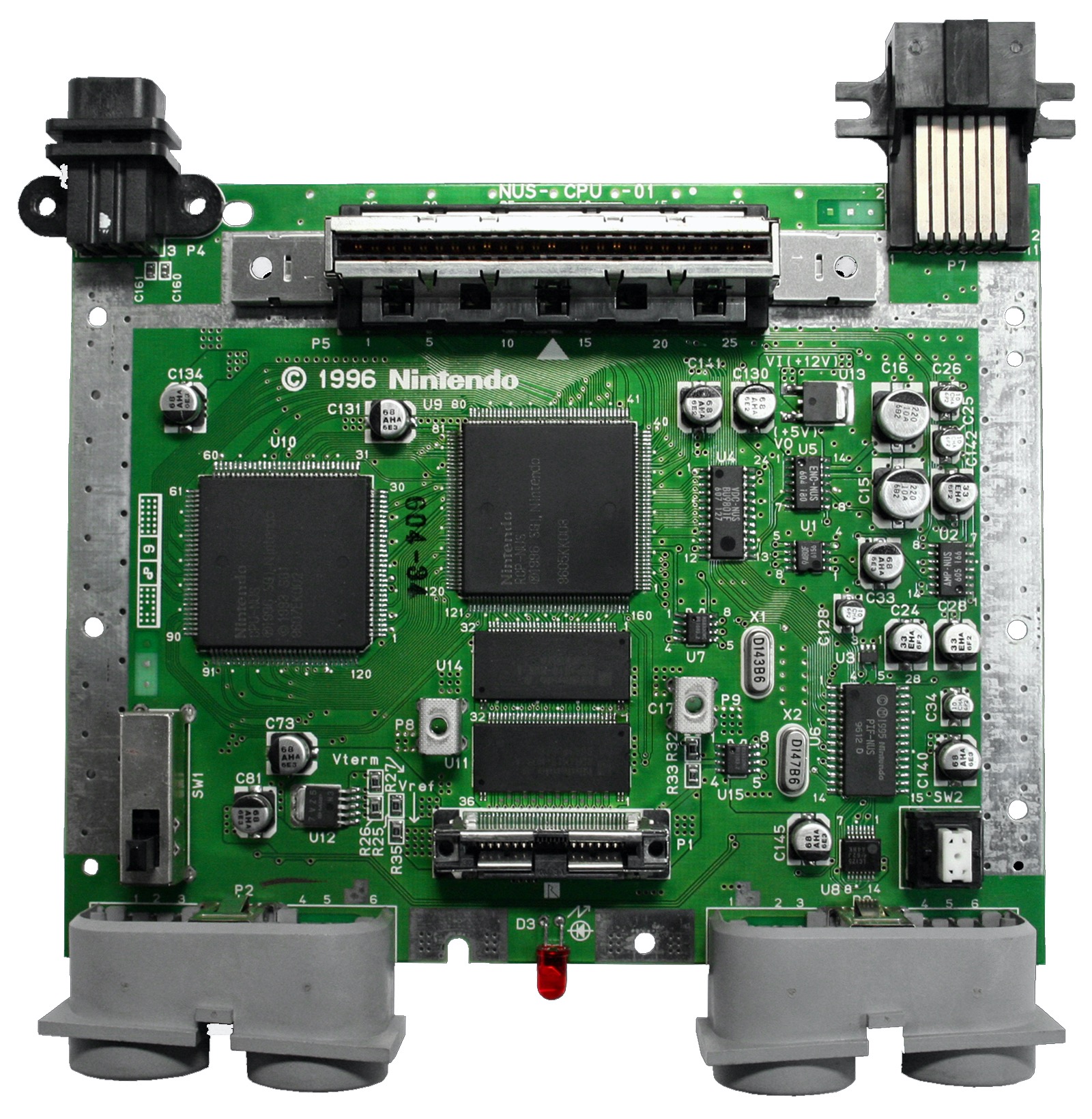
The Nintendo 64 hardware brought incredible processing power into players homes with its 64-bit architecture and state of the art graphics.
In order to pull this off Nintendo worked with SGI and a number of manufacturers to develop a PCB that would not only deliver power but would also be affordable to the average consumer.
The custom chips inside the N64 all have the suffix NUS which stands for Nintendo Ultra Sixtyfour.
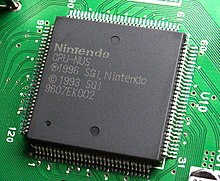
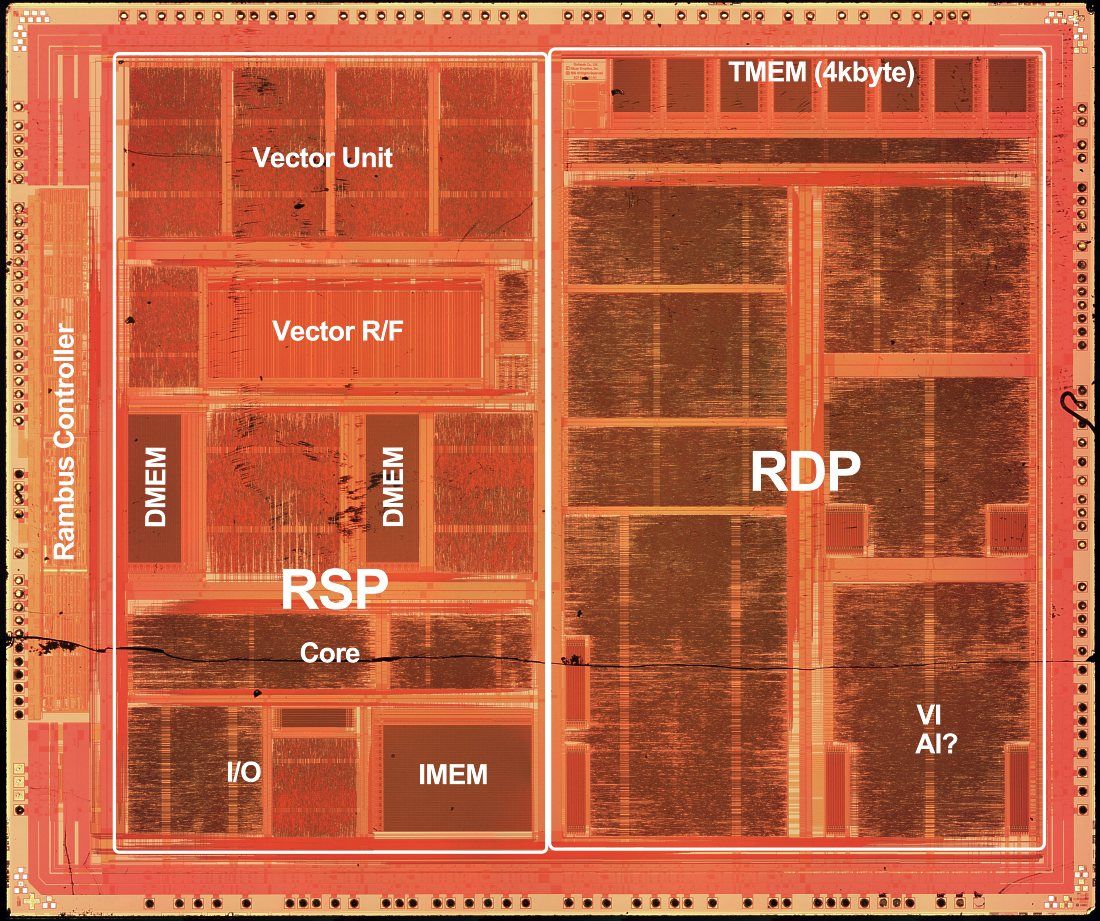
Unlike most PC hardware at the time the Nintendo 64 has the advantage of having its own stand alone graphics processor known as the Reality Co-Processor (RCP). This freed up the main CPU from having to do any graphics calculations and it could use all its processing power for the main game logic.
The RCP chip was developed by a partnership between SGI Inc and Nintendo and the retail version was physically manufactured by NEC 1.
The RCP is actually split into two distinct parts one for the Gemotry transformations known as the Reality Signal Processor (RSP) and the other for the Per-pixel calculations known as the Reality Display Processor (RDP). You can see the de-capped chip on the left, showing the main parts such as the RDP and RSP.
The Reality Display Processor (RDP) is used to render the polygons into 2D pixels that it stores in the FrameBuffer ready to be displayed on the screen.
N64 RDP - Reality Display Processor
For more information about the Reality Display Processor check out this post.
The N64 Reality Signal Processor (RSP) is the part of the Reality Co-Processor (RCP) that deals with data transform. It is a MIPS-based cpu like the main R4300 cpu but it also contains additional 8-bit vector opcodes.
N64 RSP - Reality Signal Processor
For more information about the Reality Signal Processor check out this post.
The Peripheral Interface Bus (PIF) handles all the input from external peripherals such as the game controllers. It has a small Initial Program Loader which is about 2kb of code.
It also was used for security to region-lock and prevent piracy, it does this by waiting for the security chip in the cartridge before it loads the next IPL from the cartridge 1.
It was designed by Nintendo but manufactured by Sharp.
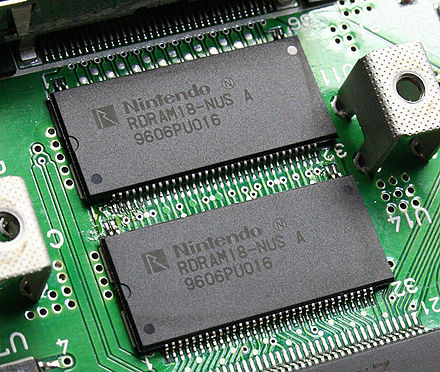
The RDRAM came as a standard 4MB and was manufactured by NEC, you could get an additional 4MB if you used the Expansion Pak 1.
The MX8330MC is a RAMBUS clock generator developed by Macronix, hence the MX in the name.
The Audio Amp used for any audio playback and fun actions as a regular amp.
16-bit stereo audio DAC.
The Dac Encoder is used for processing video
The Mask ROMS were manufactured by Macronix and contained all the game data in a single chip 1.